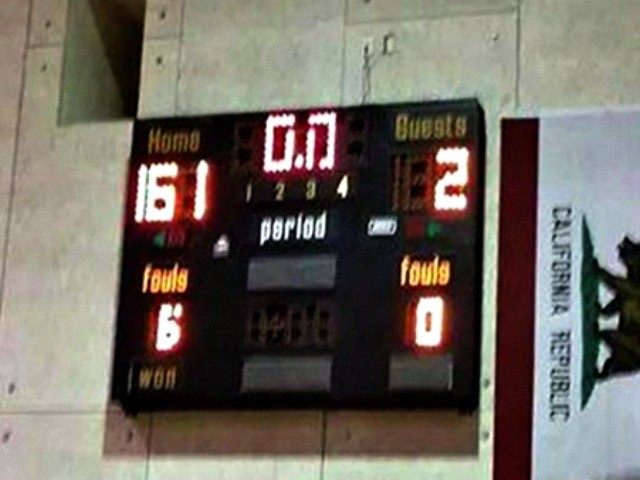A high school basketball coach was suspended for allowing his team to annihilate and humiliate the Bloomington High School girls’ basketball team to the tune of a 159-point loss.
While some may take the opinion that competition is good and the losing team should suck it up, those who understand the culture of sports understand this unwritten rule: “Thou shalt not run thy opposition into the ground.” Somehow, Arroyo Valley Coach Michael Anderson never read that rule, and the consequence is a two-game suspension.
In sports, particularly at the high school level, good coaches teach more than the strategies of the game; they teach principles that go along with the game. In response to the suspension, I heard someone ask, “Since when is winning a bad thing?” He suggested America has sold out exceptionalism in favor of dumbing down competition and beefing up equal outcomes.
But that is certainly not the case here. Teaching players how to win is as important—if not more so—as teaching them how to lose. If losing with dignity is important, winning with dignity certainly is as well. And that is a quality good coaches teach.
Granted, it is extremely difficult to rein in players who have been coached to go all-out every minute of every game. That’s why good coaches and their teams actually practice how to perform in these kinds of situations.
As a high school girls’ varsity basketball coach, I was once reamed out when my team beat an opponent by about 70 points. I did not purposely run up the score. My girls were just that much better than the other team, and they held back as much as possible. The opposing team’s coach recognized that I was not trying to humiliate his team. In fact, he acknowledged that we could have easily beaten them by much more. My athletic director did not see it that way, however. When the game ended, he made a beeline for me and scolded me right there—in front of everyone.
As Breitbart News reported, Anderson defended himself by saying, “I didn’t play any starters in the second half,” adding, “I didn’t expect them (Bloomington) to be that bad. … And I didn’t expect my bench to play that well. I had one (bench) player make eight of nine 3s.”
I respect his decision to rest his starters, which is what a good coach, with integrity, does in that situation. That’s basic. What I don’t understand is how he apparently does not see the fault in one of his statements. Why was any player—even a bench player—taking three-pointers in a game the team was winning by such a large margin? Coaching 101: when the game starts to get out of control, call a timeout, remind players that shooting threes is unacceptable, and sit any player down who does not abide by that basic unwritten rule.
The beauty of sports is that they always provide opportunities to mature. Usually, we think players are the ones who need to grow. In this case, there is much the coach can learn. So I, a two-time conference championship former basketball coach, will offer some sound advice–advice that will help prevent a coach from winning a game but losing his players in the more important game of life.
Understanding the value of every game is important. This blowout game gave the superior team the opportunity to become even better, even though the competition didn’t present a challenge. Not every game is going to be that easy, so this is where the coach reminds his team of the fundamentals of the game and insists they employ them to perfection. This is where Anderson tells his players they will not apply full-court pressure–or even transition “to a half-court trap to start the second half,” which they reportedly did, as if that were an act of mercy against a team that “only got the ball past half-court maybe four or five times in the first half.”
Anderson said he instructed his players to deplete most of the shot clock in the second half, which was the proper move. However, he should have also coached his team to work on their plays by running them through completely, swinging the ball around the floor, refraining from shooting until every person touched the ball at least once, improving their inside-out game, sitting back in a zone defense rather than playing man-to-man, abstaining from steal attempts, and playing the game in the half-court setting, with no fast-break points. And he certainly should have stressed that this was not the time for a bench player to get her fifteen minutes of fame by hoisting up long-range shots. By insisting on these things, a team, even one as good as Arroyo’s appears to be, becomes better; it emerges more fundamentally sound, more disciplined—and more principled.
Those who do not understand the culture of sports say this approach defeats the purpose of competition and downplays winning. They attempt to make some political spreading-the-basketball-wealth-around statement about it. They argue that criticisms against the Arroyo Valley girls’ basketball team and suspension of the coach are what’s wrong with America. But they’re misguided. This isn’t about refusing to conquer; it’s about learning to conquer with character.

COMMENTS
Please let us know if you're having issues with commenting.